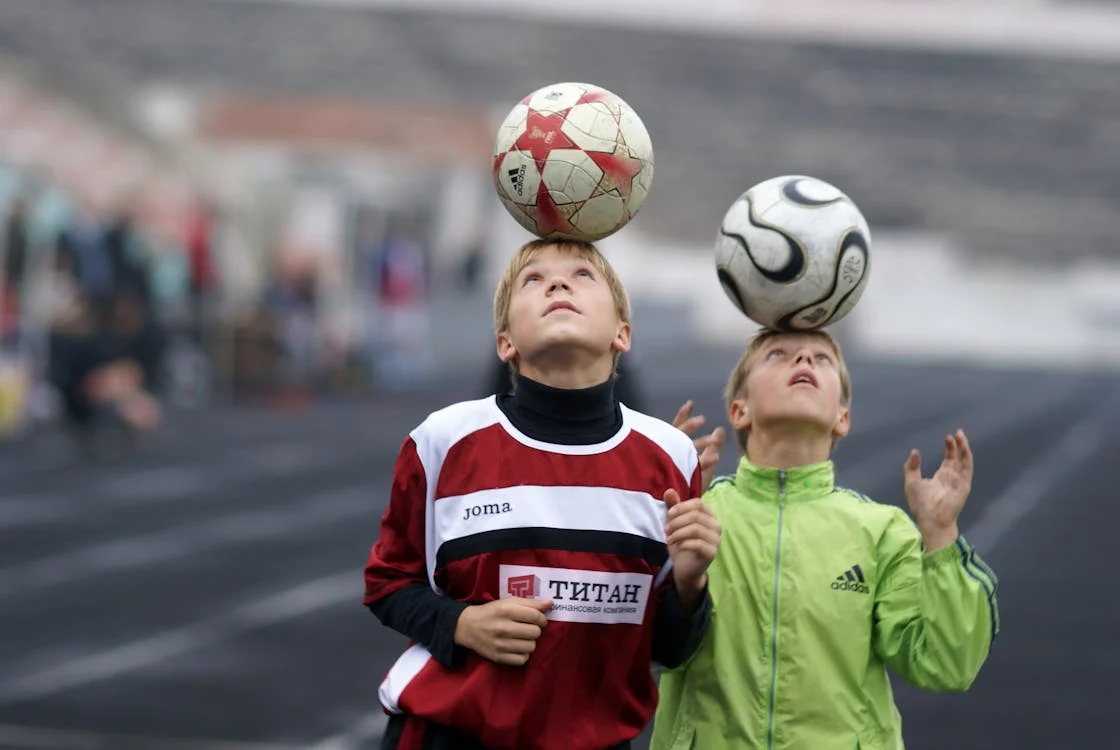Top Soccer Skills Training Techniques to Improve Your Game
Top Soccer Skills Training Techniques to Improve Your Game
Soccer, or football as it’s known in many parts of the world, is a game of finesse, strategy, and endurance. To excel in this sport, players need to master essential skills like ball control, dribbling, passing, and shooting. Whether you’re an aspiring professional or just playing for fun, developing these core techniques will significantly enhance your performance on the field. This article covers the top soccer skills training techniques that can elevate your game.

1. Dribbling: Control the Ball Like a Pro
Dribbling is one of the most fundamental skills in soccer. A good dribbler can maneuver through defenders, maintain possession, and create scoring opportunities. Here’s how to sharpen your dribbling skills:
- Keep the Ball Close: Ensure the ball is never more than a step away from your feet. This helps with quick turns and tight control.
- Use Both Feet: Being able to dribble with both your dominant and non-dominant foot gives you more flexibility and unpredictability on the field.
- Change Direction and Speed: Practice changing your pace while dribbling. Slowing down and speeding up can throw off defenders.
- Cone Drills: Set up a series of cones and dribble through them as quickly and smoothly as possible. This simulates real-game scenarios where you need to weave through opposing players.
2. Passing: Accuracy is Key
Passing is another crucial skill, as soccer is a team sport that relies heavily on precise, timely passes. The best players can deliver the ball exactly where it needs to be, whether it’s a short pass to a nearby teammate or a long cross-field pass.
- Short Passing Drills: Partner with a teammate or use a wall to practice short, quick passes. Focus on accuracy and control.
- Long Passes: For longer passes, practice kicking the ball with power while maintaining direction. Target cones or objects placed at varying distances to improve aim.
- One-Touch Passing: This drill focuses on making quick decisions. Pass the ball to a teammate and immediately receive it back in one touch, then pass it again.
- Passing While Moving: Passing while standing still is easy, but real-game situations require movement. Incorporate running into your passing drills to mimic match conditions.
3. Shooting: Become a Lethal Striker
Scoring goals is the ultimate aim of soccer, and improving your shooting accuracy and power can make you a more dangerous player on the field.
- Strike with the Laces: For powerful shots, use the laces part of your foot (the top) and follow through with your leg.
- Placement Over Power: Sometimes, a well-placed shot is more effective than a powerful one. Practice aiming for the corners of the goal.
- Use Both Feet: Like dribbling, being proficient with both feet can open up more scoring angles. Dedicate time to shooting drills with your weaker foot.
- Repetition: Place cones around the penalty box and practice shooting from different angles and distances. Repetition is key to mastering this skill.
4. Ball Control: First Touch Perfection
First touch refers to how well you can control the ball when it’s passed to you. A good first touch allows you to quickly move the ball into space or away from defenders.
- Juggling: Juggling the ball is an excellent way to develop soft touches. Start with your dominant foot and slowly incorporate your non-dominant foot, thighs, and head.
- Trap and Release: Have a partner pass you the ball, then practice trapping it with different parts of your body (foot, chest, thigh) before quickly passing it again.
- Wall Drills: Kick the ball against a wall and control it on the rebound. This will improve your reaction time and touch in unpredictable situations.
5. Positioning: Know Where to Be
Positioning is an often-overlooked skill but is just as important as technical ability. Knowing where to be on the field during different phases of the game can make a huge difference in your performance.
- Watch the Pros: Analyze professional matches to understand where players position themselves during different phases of play (defending, attacking, and transitioning).
- Shadow Play: This drill involves moving around the field without the ball, imagining where you would be during a game. Work on anticipating where the ball will go and positioning yourself accordingly.
- Defensive Positioning: When defending, focus on staying between the ball and the goal. Practice body positioning to block passing lanes and force attackers wide.
6. Stamina and Conditioning: Stay in the Game Longer
Soccer requires high levels of cardiovascular fitness. To play at your best for the full 90 minutes, you need to be in peak physical condition.
- Interval Training: Soccer is a game of bursts. Mimic game conditions by alternating between sprinting and jogging in your training sessions.
- Agility Drills: Set up a ladder or cones and practice quick, agile movements. This will help you react faster and change direction more easily.
- Endurance Runs: Build your stamina by incorporating long-distance running into your training routine. This ensures you have the endurance to play the entire game without tiring out.
Conclusion
Mastering these soccer skills will take time, but with consistent practice and dedication, you’ll see improvement in your game. Remember, soccer isn’t just about raw talent; it’s about developing a well-rounded skill set that makes you a valuable player both individually and as part of a team. By focusing on dribbling, passing, shooting, ball control, positioning, and conditioning, you’ll have all the tools needed to elevate your game to the next level.
FAQs
1. How long does it take to improve soccer skills?
It varies depending on the player’s dedication and current skill level. With regular practice, noticeable improvements can be seen within a few weeks to a couple of months.
2. How can I improve my weaker foot?
Consistent practice is key. Dedicate time during each training session to work on drills like passing, shooting, and dribbling with your weaker foot.
3. What are some good soccer drills to do alone?
Drills like ball juggling, wall passes, cone dribbling, and shooting at targets can all be done without a partner and are excellent for improving skills on your own.
4. How important is conditioning in soccer?
Very important. Soccer is a physically demanding sport, and good conditioning allows you to maintain a high level of performance throughout the match.
5. Can watching soccer games help improve my skills?
Yes, watching professional games can help you learn about positioning, decision-making, and strategies that you can apply in your own game.

